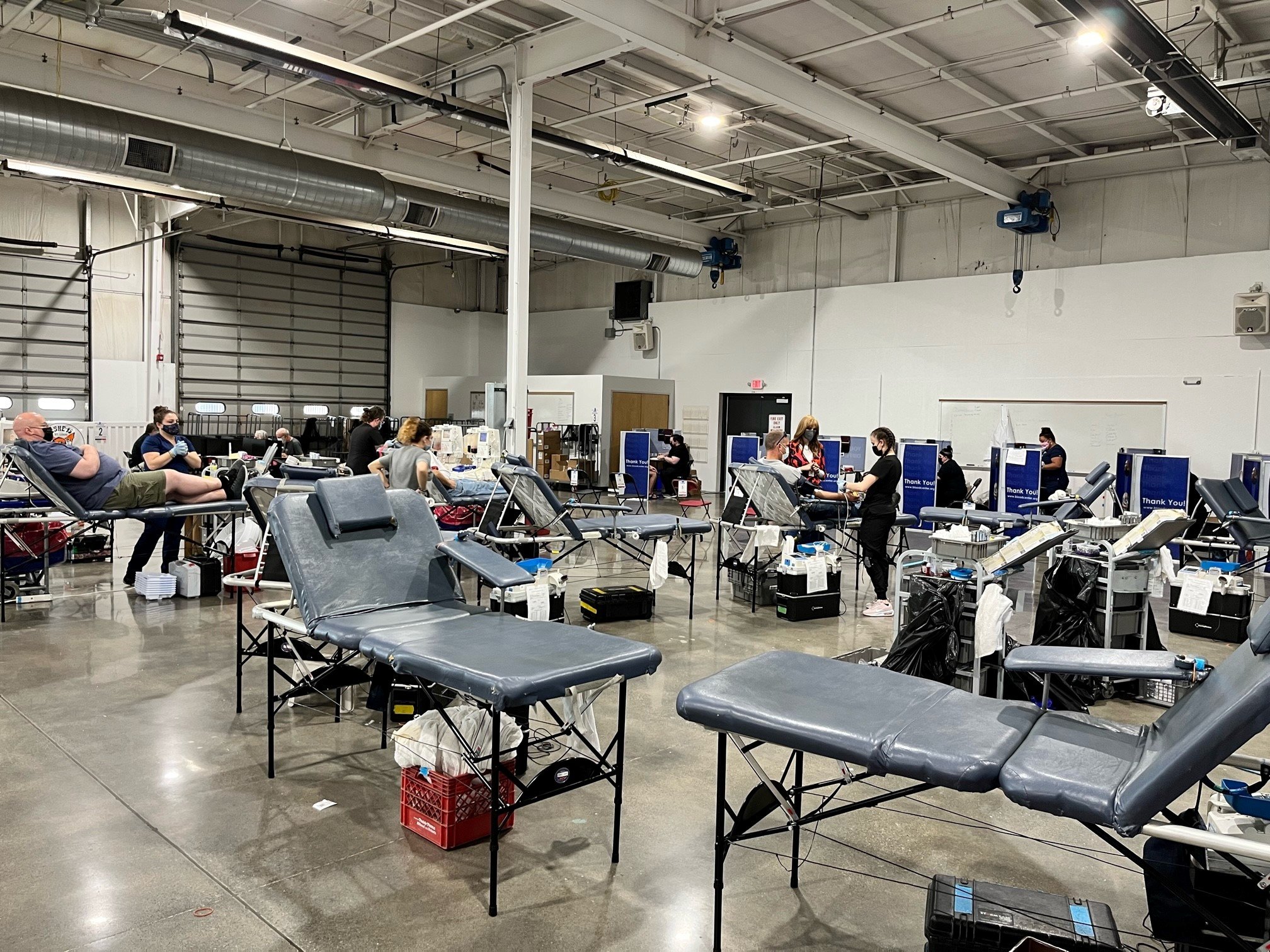If you have ever donated blood, you may have noticed a marked uptick in the number of phone calls from the local blood donation center asking you to come back in and donate again. Citing a low inventory of your blood type, they entreat you to come in and offer lifesaving support for your community. Recently our local donation center, ImpactLife, even began raising their donor incentives to offer $20 gift cards.
This January, the Red Cross sounded the alarm of a national blood supply crisis prompting an uptick in donations, but donation centers across the nation have seen a summer lull leading to a 20% decrease in available blood supply. We decided to dig into the issue a little deeper and find out how our community is faring.
The good news is that according to two of our major local hospital systems, OSF Heart of Mary Medical Center and Carle Foundation Hospital, the blood shortage has not had any impact on their ability to provide transfusions or other important services. However representatives of both institutions underscored the vital importance of donating blood to save lives.
We reached out to ImpactLife to find out more about blood donation and how they support local communities. Their Public Relations Manager, Kirby Winn, responded saying:
The needs of local hospitals that rely on ImpactLife for their blood supply always come first. We serve a total of 124 hospitals in Illinois, Iowa, Missouri, and Wisconsin. For a complete list and map of our service region, see www.bloodcenter.org/hospitals. We do send blood components outside our region on a limited basis, but especially to help respond to emergencies elsewhere. We are part of a national organization called Blood Emergency Readiness Corps, or BERC, that provides a back-up supply in case any region of the country has an unexpected spike in blood utilization, such as what might occur after a natural disaster or mass casualty event. Members of BERC are “on call” to provide back-up support once every three weeks. (We are among 10 blood centers across the U.S. who are on call during the same week, so the impact to the blood supply would be relatively small if we would have a BERC activation during our on call week.)
As for eligibility to donate blood, ImpactLife complies with standards for donor eligibility set by the U.S. Food and Drug Administration. At the most basic level, a donor must be at least 16 years of age and weigh more than 110 lbs. For a more nuanced list, you can check out the FAQs on the ImpactLife webpage. We do note that although they have a page about “Pride” and “Supporting the LGTBQIA+ community, they still must comply with the arguably homophobic FDA regulation of turning away donations from men who have had sex with another man within the last three months.
One unexpected takeaway from our interview with Winn was that a secondary critical issue impacting blood supply is staffing issues. Winn added, “ImpactLife provides paid training in phlebotomy and our blood collection processes. We welcome applicants of all backgrounds at www.bloodcenter.org/apply.”
With the ongoing gun violence epidemic and COVID-19 pandemic, there is a persistent need for a stable supply of blood in our community. While we are lucky enough in Champaign-Urbana that our local hospitals have not yet had to deny care, donating blood is a relatively easy way to save lives and ensure that supplies are available when they are needed.
The Editorial Board is Jessica Hammie, Julie McClure, Patrick Singer, and Mara Thacker.








